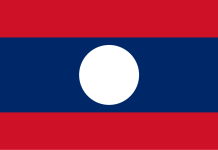
The Federal Government has requested an 18-month extension for the $800 million palliative loan from the World Bank, which aims to alleviate the impact of recent government policies, including the removal of the fuel subsidy. This extension would shift the project’s closing date from June 30, 2024, to December 31, 2025.
According to the World Bank’s restructuring paper, around three million poor and vulnerable households have benefitted from this loan. Of these, 700,000 households are from rural areas, and approximately 2.5 million households are from urban areas. The report, which outlines plans to bolster social safety net programs amid rising inflation and economic challenges, was obtained from the World Bank’s website on Wednesday.
The restructuring aims to enhance the National Social Safety Net Program-Scale Up (NASSP-SU), covering 1,652 urban wards through a targeting system developed under the project. The document states, “Since its inception, about 30 million beneficiaries have been covered by social safety net programs, and about three million poor and vulnerable households have received shock-responsive cash transfers as of May 2024.”
A digital payment delivery mechanism has been established, utilizing straight-through processing to deliver transfers directly to beneficiaries’ accounts or wallets. The National Social Register is being integrated with the National Identification Number to strengthen the targeting system further.
Approved on December 16, 2021, and effective from January 30, 2023, the NASSP-SU project was designed to provide shock-responsive safety net support to Nigeria’s poor and vulnerable populations. The Federal Government had intended to implement a monthly cash transfer program for those most affected by recent policies like the fuel subsidy removal. However, the scheme was halted due to a probe into alleged mismanagement by the Ministry of Humanitarian Affairs and Poverty Alleviation.
To restart the cash transfer program, the government seeks to transfer the chairmanship of the project’s national steering committee from the Minister of Humanitarian Affairs and Poverty Alleviation to the Minister of Finance. This restructuring request is partly due to Nigeria’s high inflation, which reached 33.2% in early 2024, exacerbated by the removal of fuel subsidies and exchange rate depreciation.
The document outlines the restructuring goals: “This paper seeks approval from the Country Director for a Level II restructuring of the National Social Safety Net Program Scale-Up project, an $800 million Investment Project Financing. The restructuring will extend the project closing date by 18 months from June 30, 2024, to December 31, 2025. The benefit size and duration of the cash transfers under component 1 will also be changed.”
The government aims to reach 15 million households with N75,000 in temporary cash transfers, distributed over three monthly payments. “The ESR-CT will provide total benefit amounts of seventy-five thousand Naira (N75,000) to each beneficiary household, spread across three months. In response to increased inflation, the benefit size for cash transfers will be increased from thirty thousand Naira (N30,000) per beneficiary household, spread over six months,” the document states.
The World Bank has also initiated a Security Risk Assessment and Management Plan to address security risks, following two fatal incidents involving project staff.
The $800 million loan terms include a maximum commitment charge rate of one-half of one percent per annum on the Unwithdrawn Financing Balance and a service charge of three-fourths of one percent per annum on the withdrawn credit balance. The interest charge is one and a quarter percent per annum on the withdrawn credit balance. The principal amount will be repaid in increasing percentages over time, starting at 1.65% and rising to 3.40%.
So far, only 39.38% of the loan has been disbursed to Nigeria, with a pending balance of about $485 million remaining.












